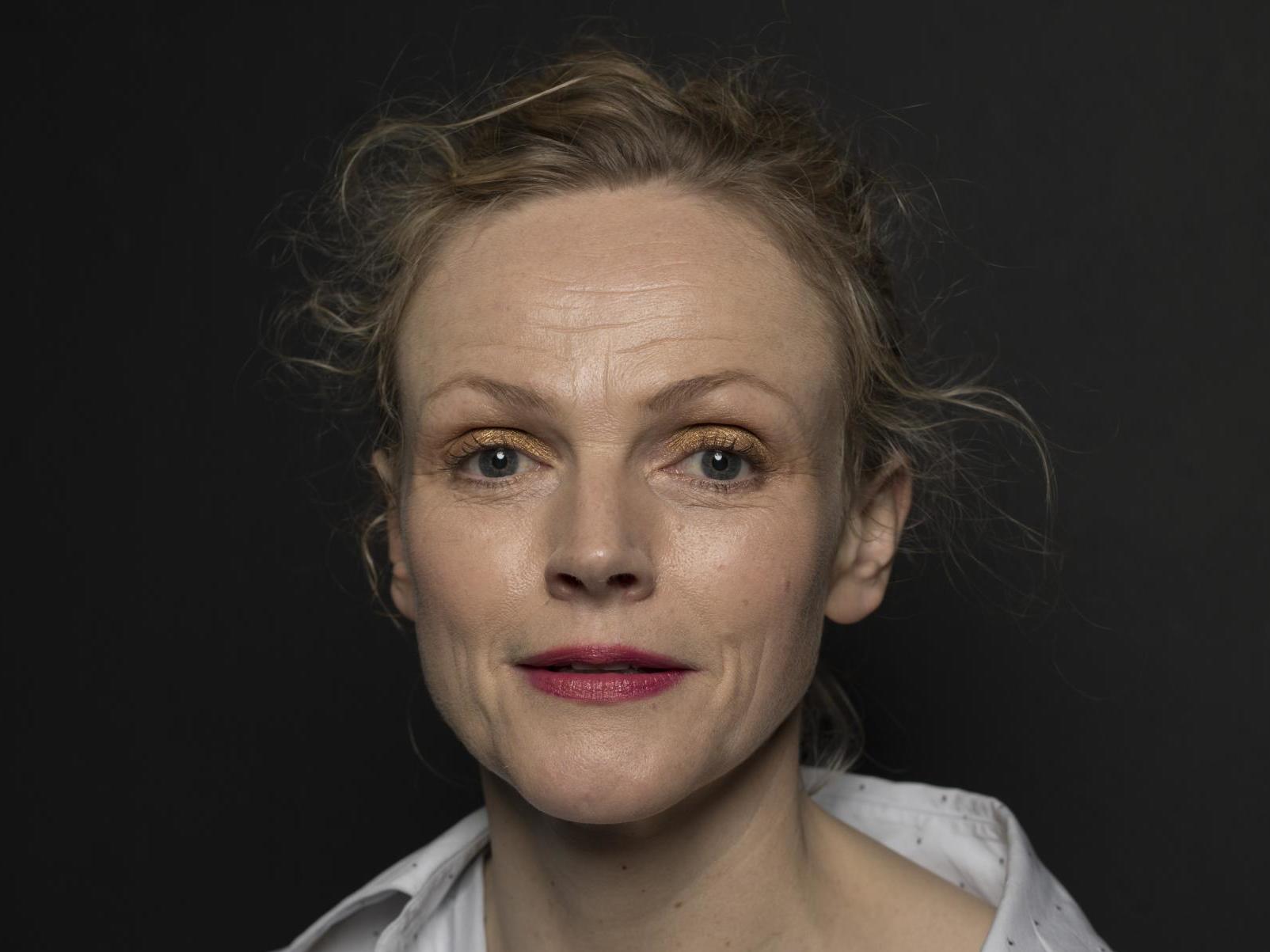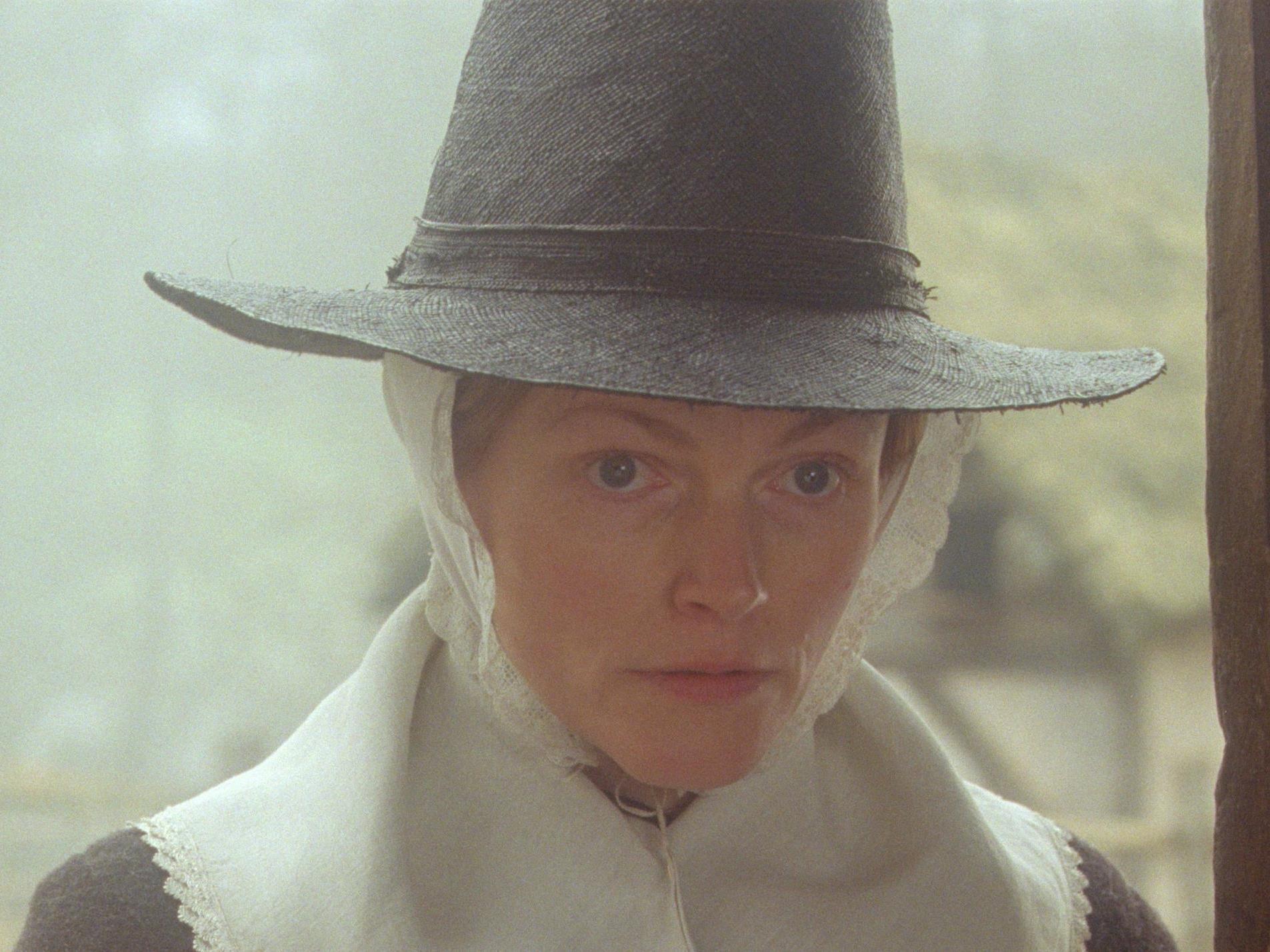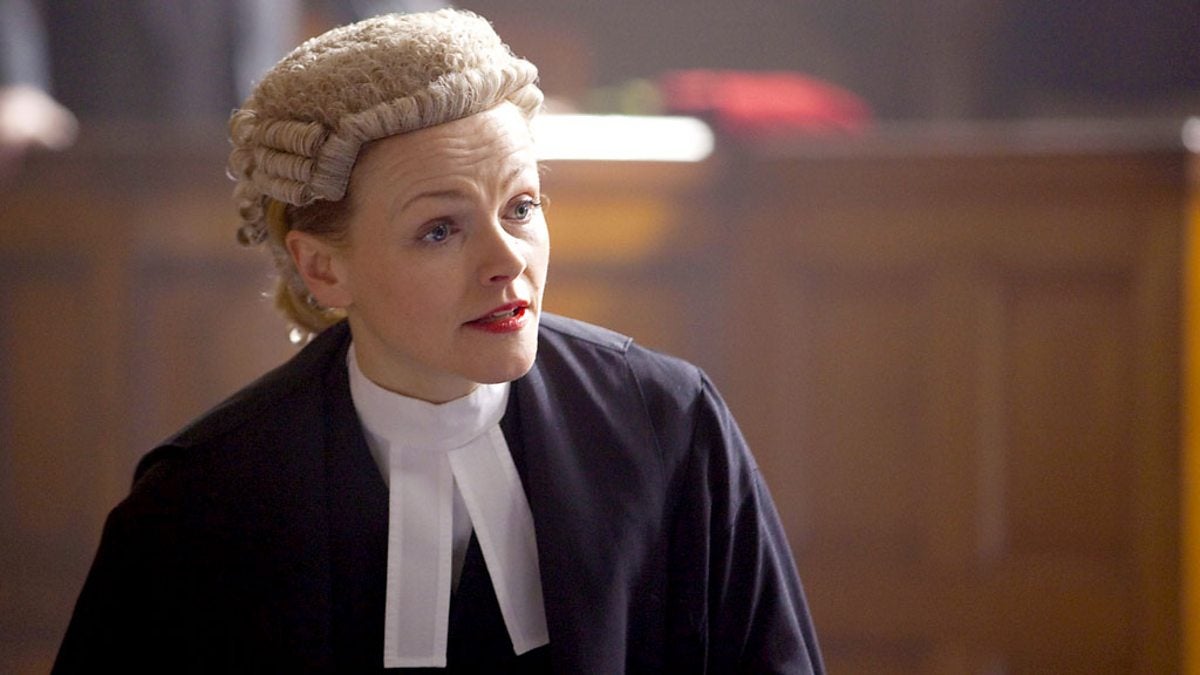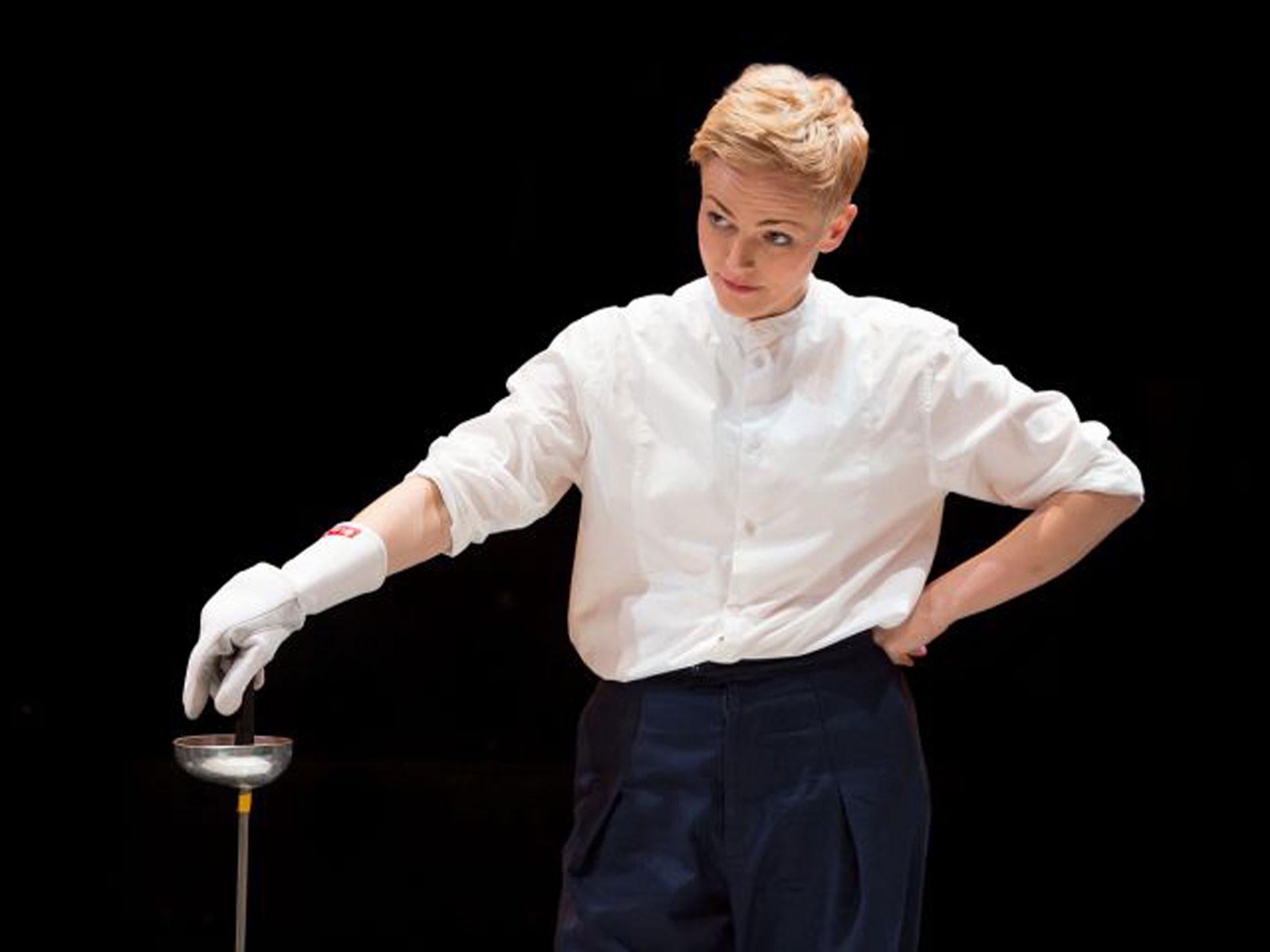Maxine Peake: ‘People who couldn’t vote Labour because of Corbyn? They voted Tory as far as I’m concerned’
The star of ‘Shameless’ and ‘Silk’ talks to Alexandra Pollard about her new film ‘Fanny Lye Deliver’d’, the government’s shambolic handling of coronavirus and why she believes we should rid ourselves of capitalism


Your support helps us to tell the story
From reproductive rights to climate change to Big Tech, The Independent is on the ground when the story is developing. Whether it's investigating the financials of Elon Musk's pro-Trump PAC or producing our latest documentary, 'The A Word', which shines a light on the American women fighting for reproductive rights, we know how important it is to parse out the facts from the messaging.
At such a critical moment in US history, we need reporters on the ground. Your donation allows us to keep sending journalists to speak to both sides of the story.
The Independent is trusted by Americans across the entire political spectrum. And unlike many other quality news outlets, we choose not to lock Americans out of our reporting and analysis with paywalls. We believe quality journalism should be available to everyone, paid for by those who can afford it.
Your support makes all the difference.It’s about 10 minutes into our conversation that Maxine Peake first calls for the destruction of capitalism. “We’ve got to save humanity,” says the venerated actor and activist, who in her youth was a card-carrying communist. “We’re being ruled by capitalist, fascist dictators. It’s entrenched, isn’t it? We’ve got to the point where protecting capital is much more important than anybody’s life. How do we dig out of that? How do we change?”
We’ve arrived at this subject, somehow, by way of Fanny Lye Deliver’d. Peake filmed the 17th-century Shropshire western four years ago – “I keep thinking it’s been and gone, and then I’m like, ‘Oh, no!’” – but writer-director-editor-composer Thomas Clay is “very particular”, says Peake with a chuckle, so it’s only just seeing the light of day. She plays Fanny, downtrodden wife to the puritanical John (Charles Dance). Fanny’s not a shrinking violet, exactly, but she’s indoctrinated into patriarchal servitude and extreme religion, and carries a heavy load because she’s never been told she can put it down.
“Fanny’s a survivor,” says Peake, who’s quarantining at home in Manchester. She’s supposed to be in Palestine still, liaising with young activists, but she had to fly home when the world started shutting down. “She had a horrific past life. The only option you had was to attach yourself to a man and get through it. But it’s the men that get it in the end.”
When young couple Thomas and Rebecca – played by Freddie Fox and Tanya Reynolds – barrel into Fanny’s life, they offer a radically different kind of outlook. “Sin is but a word,” says Thomas, “an imposter of the rich to get poor men in order.” “Well,” says Peake when I mention that line, “if you talk about the formation of religion, it’s about control isn’t it? And with what’s happening in America at the moment, it’s about financial control. It’s about keeping the poor in their place.” As we speak, Black Lives Matter protestors are out on the streets after yet another killing of an unarmed black man, George Floyd, by police.
“I don’t know how we escape that cycle that’s indoctrinated into us all,” continues the 45-year-old. “Well, we get rid of it when we get rid of capitalism as far as I’m concerned. That’s what it’s all about. The establishment has got to go. We’ve got to change it.” Born in Bolton to a lorry driver father and care worker mother, Peake is strident and expressive; if religion wasn’t anathema to her, she’d be perfect in the pulpit. “Systemic racism is a global issue,” she adds. “The tactics used by the police in America, kneeling on George Floyd’s neck, that was learnt from seminars with Israeli secret services.” (A spokesperson for the Israeli police has denied this, stating that “there is no tactic or protocol that calls to put pressure on the neck or airway”.)
In 2018, Peake starred in Peterloo, the Mike Leigh film that recounted the deadly suppression of a peaceful protest by Manchester’s cavalry in 1819. It’s a little depressing that those sorts of things are still happening now. “It is, isn’t it?” says Peake. “And frightening. But I think we do have to remember the changes that were made along the way. I imagine this generation just feels completely adrift, but there is so much history of the struggle that can be learnt from.”

Ever since she made her name 20 years ago in the Victoria Wood sitcom Dinnerladies, Peake has gravitated towards work of social substance. There was Veronica Fisher in Shameless, the black comedy set on a Manchester council estate; formidable barrister Martha Costello in legal drama Silk; health worker Sara Rowbotham in Three Girls, the devastating dramatisation of the Rochdale child sex abuse ring; and Desiree Akhavan’s ex-girlfriend Sadie in the criminally underrated Channel 4 comedy The Bisexual. To these roles, she brings no sheen or ego, just a steely intelligence and deep-rooted humanity – a quality shared only by actors like Olivia Colman and Sarah Lancashire. She’s a regular on the stage too, usually up north, where she makes behemothic roles look easy and hackneyed lines sound fresh; she was a desperate, deluded Blanche in A Streetcar Named Desire and a fretting, fidgety Hamlet.
Peake believes in the power of performance. “I’m not saying we are the saviours of the human race, but a lot of people have a television,” she says. “When I was younger, I know it changed my view on the world.” Then again, she adds, there’s plenty of progress to be made. “There’s massive deficits with actors of colour. I want more stories that represent Britain as it is. I still sometimes watch dramas and think, ‘Well, that doesn’t look like the street in Manchester that I live on.’”
When Peake was growing up, “there were white working-class young people on television. I can’t imagine what it’s like to grow up and watch something that’s in the corner of your living room and not see yourself reflected back. I can’t imagine how that can affect you. Everyone’s got a story. But who are the gatekeepers who decide the story that will speak to people? They always get it wrong, don’t they?”

Still, Peake doesn’t think art should only reflect the good stuff. In her 2018 comedy-drama Funny Cow, in which she plays an aspiring stand-up in the Seventies trying to make it into the boys’ club of comedy, her character unleashes a barrage of racist and homophobic jokes. So how do we reflect past realities while respecting current sensitivities?
“My whole thing is you can’t wipe out history, because you don’t learn from it,” says Peake. “When I tried pitching Funny Cow, people said, ‘Well, you’ll have to get rid of all the jokes,’ and we went, ‘It’s the Seventies. It’s Sheffield. We’re trying to say how brutal and bigoted and racist and despicable this world was.’ We can never forget our history or we don’t move forward and we don’t learn. If we Americanise it or Hollywoodise it and rewrite it, then we’ve forgotten it and then we’re shocked when it comes around again.”
Peake believes we should be able to learn from our smaller slip-ups, too – particularly when it comes to terminology. “The thing with language is I think some people get frightened,” she says. “When people don’t understand, they get frightened, and then they get embarrassed and then they get angry and then it turns ugly. We need to break down that embarrassment, don’t we? It’s alright to get it wrong as long as you’re gonna move towards getting it right. Sometimes I’d rather people say something wrong than never say anything because they’re too frightened. So you said something wrong – nobody died! Somebody pulls you up on it, somebody tells you the right word, then you move on. But we’ve got so much shame and guilt in our society about putting a foot wrong. I think people should be allowed to make mistakes, as long as people make those mistakes with a view to going, ‘Well how do I rectify this?’ But make that the culture. That it’s alright to get it wrong every now and again.”
Still, there’s getting it wrong, and there’s our current government – and Peake is damned if she’s letting Boris Johnson and his posse off so lightly. “This country’s getting Dickensian,” she says, spits almost. “We’ve not got leadership, we’re in a mess. Look at Covid. What an absolute shambles. People voted for this. The mind boggles. But it doesn’t surprise me. Sadly. I’m not going, ‘Oh my God, I can’t believe this has been dealt with so badly.’ I can believe it. It’s dark times ahead.”

Peake campaigned for the Labour Party at the last general election, and was a vocal supporter of Jeremy Corbyn even as many people turned their back on him. “Those people who were normally Labour supporters who felt they couldn’t vote Labour? Well I’m sorry, they voted Tory as far as I’m concerned,” says Peake. “And it breaks my heart, because you know what? I didn’t like Tony Blair, but I still voted Labour because anything’s better than the Tories. There’s a lot of people who should hang their heads in shame. People going, ‘Oh, I can join the Labour Party again because Keir Starmer’s there,’ well shame on you.”
What does she think of the new Labour leader? “You know what, at the end of the day, all I want is the Tories out. I think people will get behind Starmer, won’t they? He’s a more acceptable face of the Labour Party for a lot of people who are not really left wing. But that’s fine. Whatever. As long as the Tories get out, I don’t care anymore. You can’t be sad, you’ve just got to get on and organise, without standing at the rooftops and going, ‘You reap what you sow!’ There were moments when I wanted to scream that,” she adds with a doleful laugh, “but no, we’ve got to keep moving forward.”
Peake might not be a communist anymore, but she’s kept some of the lingo. “I think you find solace in comrades,” she says when I ask how she finds the energy to keep moving forward. “It’s knowing you’re not alone. I must admit recently, politically, I’ve felt a little bit of an island on my own – especially in the acting fraternity. People are frightened of speaking, because they’ve got careers and they need to pay the mortgages. It’s hard, but when those little victories happen, it brings a lot of happiness. You join a long line of generations of people who’ve been kicking back.” She laughs. “And you go, ‘Oh, well I’m in that gang. That’s alright.’”
‘Fanny Lye Deliver’d ‘is available now on Curzon Home Cinema as part of Ed Film Fest at Home
UPDATE (25.06.20): This article has been amended to further clarify that the allegation that US police were taught tactics of “neck kneeling” by Israeli secret services is unfounded. The original version did carry a denial from Israeli police, however we are happy to further clarify the matter.
Join our commenting forum
Join thought-provoking conversations, follow other Independent readers and see their replies
Comments